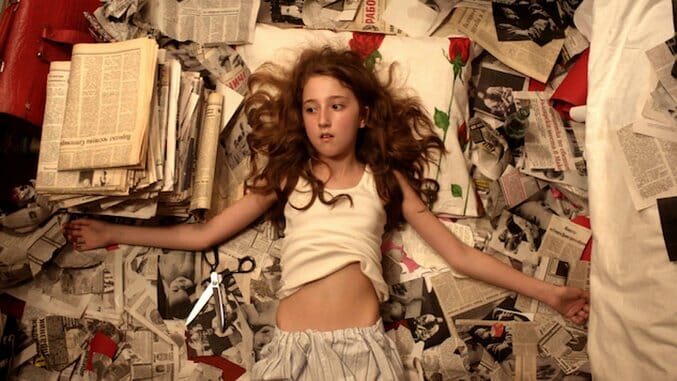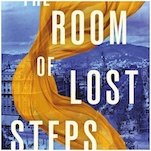Viktoria

A coiled, slightly surrealistic drama that provides an impressionistic snapshot of particularly feminine pain and longing, debut director Maya Vitkova’s Viktoria reimagines maternal ambivalence as a metaphor for broader dislocation. The result, brittle and distinctive if rather overlong, is a tone poem that uses sociopolitical disadvantage to pry open the sympathies of an art house audience.
The story, set in the 1980s, follows three generations of women against the backdrop of the dissolution of the People’s Republic of Bulgaria, as the country lurches awkwardly toward democracy. More than just a reluctant mother-to-be, Boryana (Irmena Chichikova) very actively does not want to have a child. So when she gets pregnant with boyfriend Ivan (Dimo Dimov), it is shattering to her. Born without an umbilical cord (and thus no belly button) on the anniversary of Bulgaria’s socialist revolution, Boryana’s daughter Viktoria is heralded by Communist party leaders as the “baby of the decade,” the perfect symbol of an evolving country untethered to past problems.
A little less than one hour in, the film flashes forward to 1989, where now 9-year-old Viktoria (Daria Vitkova), having been showered with gifts and anointed a celebrity of sorts by the Communist regime, finds her privileged world thrown into disarray by the disintegration of the Eastern Bloc. This new reality forces Viktoria (played in her teenage years by Kalina Vitkova) and Boryana into greater conflict. It also draws Boryana’s own mother, Dima (Mariana Krumova), a stern and unloving Communist loyalist—“This is a party member, not a mom,” says Boryana)—back into relationships with her daughter and granddaughter.
Though powered by a touch of magical realism, Viktoria shares much in common with the minimalism of the recent Romanian New Wave—no great surprise, given that the movie is co-produced by Cristi Puiu. It commingles the personal and political in a very interchangeable manner, presenting its characters’ dilemmas and even inner feelings as inexorably linked to their surroundings. It is, however, a very specifically feminine vision (what other movie, for instance, peddles catharsis through a CGI-enhanced close-up of milk exploding from a lactating nipple?), delving into Boryana’s icy maternal indifference in a way few other recent modern films have.
-

-

-

-

-

-

-

-

-

-

-

-

-

-

-

-

-

-

-

-

-

-

-

-

-

-

-

-

-

-

-

-

-

-

-

-

-

-

-

-








































